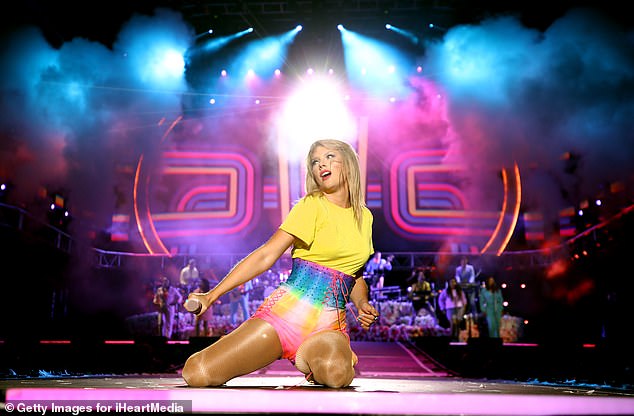Another Pride month is in the books, and I think America did a great job showing gays how much we love them. We love them even more than the straight people. We certainly love them more than black people. It’s possible we love gays even more than women.
But, unfortunately, there’s no metrics for measuring who we love the most. If only we had a dashboard… Our national, identity politics depend on us figuring this out.
Until then, I think we may have crossed the line of gay love. We had it just right, until that exploitative Taylor Swift had to show up and ruin it for everyone.
Before Taylor Swift, every corporation and shop in America bent over backwards to show gays that their money is more than welcome here.
During the month, it wasn’t hard to see rainbow flags in every shop window, rainbow billboards in big cities across the land, and even a rainbow Coca-cola logo in Citibank Stadium (home of the New York Mets) during the Mets/Braves nationally televised baseball game on Sunday, June 30.
(And if one of the country’s largest corporations feels comfortable supporting gay pride in the center of a baseball game (baseball is, of course, America’s game), it must be fairly safe to do so, right?)

You see, up until Taylor Swift, no one had exploited gays or Pride month. Every corporation who hung flags and paid for Pride-themed national advertising did that out of their sincere love and respect for the gay community. Those companies had been waiting for decades to pour their money into rainbow-advertising and activities. They’d be dying to show their love for the gay community. And finally, they all get to.
But then Taylor Swift had to come along and ruin the whole thing. Everyone knows Taylor Swift is a heinous, bigoted homophobe who hates gays. She was just trying to endear herself with gays to make money off them. Not like every other, sincere business in the country.
I’m glad the gay community got “woke” just in time to see this for what it was: a cynical exploitation of their struggle to rise from the dark gay bars of the country to the most mainstream cultural phenomena since hip hop culture.
Speaking of, I’m not the only one who thinks the entire Pride month is driven largely by corporations bending over backwards to let gays know they’ll take their money.
The alternative Queer Liberation marchers in New York are fed up with the whole thing. Their goal is to remind everyone of how the Pride march started in the first place – as a reaction to the Stonewall riots of 1969. (Stonewall was a gay bar that had been harassed by New York police.)
Their march was an attempt to “return to “a people’s political march” without corporate sponsorship and police barricades.”
One marcher said, “I prefer to walk in a pride march rather than a parade, as it’s more linked to the grassroots movement.”
See, in their minds, they’re trying to keep divide alive. If there’s mainstream acceptance of homosexuality, then the cause is dead. There’s no need for activism. They’re no longer victims. The minority status is gone. Without the fight, they’d just be, sadly… normal.
So which is it? We have corporate support for Pride, which could only happen if homosexuality was seen as safe and mainstream enough for companies to pour millions of dollars into it. (Or those corporations were brave and pioneering, betting on the inevitability of acceptance. Either way…) And we have complaints that it’s become too mainstream and corporate, and we’ve lost sight of the struggle.
Or, perhaps, the struggle is gone? Is it over? Where do activists go when they win? Do they ever really recognize the victory? Or do they get too used to the fight?
Incidentally, I noticed in the article that the LGBT acronym has grown quite a bit to LGBTQIA+. If they’re not careful, pretty soon, that acronym will include enough letters to represent everybody. And then what would we have? The charade of corporate support would become irrelevant, and we’d be left judging each individual by the content of their character. And nobody ever thought THAT was a good idea…

Comments (0)